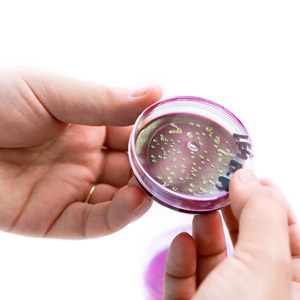
In research with mice, scientists report that they've used a potentially beneficial strain of E. coli bacteria to help detect cancer in the liver that has spread from other locations.
Many cancers spread to the liver
Many types of cancer – including colon and pancreatic – tend to spread to the liver. The earlier these tumours in the liver are detected, the better the chances of successful treatment, said the researchers, from the Massachusetts Institute of Technology and the University of California, San Diego.
The researchers used a strain of E. coli that normally inhabits the liver. It is not an illness-causing strain of E. coli. Instead, this strain is considered a helpful germ, similar to probiotic bacteria found in yogurt. The researchers reprogrammed the E. coli bacteria to produce a luminescent signal that can be detected with a simple urine test.
Read: Treating liver disease
The bacteria was given by mouth to mice with colon cancer that had spread to the liver. The bacteria "colonized" nearly 90 percent of the colon cancer tumours in the livers of the mice, the researchers reported.
None of the mice suffered any harmful side effects, according to the study. However, results from animal studies frequently don't produce similar results in humans.
Difficult to detect
The findings were published in the journal Science Translational Medicine.
The liver is hard to image with conventional imaging techniques such as CT or MRI, making it difficult to detect tumours that have spread to the organ, the researchers noted.
Using the E. coli test, the researchers said they were able to detect tumours not spotted by existing imaging methods.
Read: Preventing liver disease
The new technique could be most useful for monitoring patients after they have had a colon tumour removed. That's when they're at high risk for cancer recurrence in the liver, according to study author Sangeeta Bhatia, a professor of health sciences and electrical engineering and computer science at MIT in Cambridge, Massachusetts.
The researchers said they're also investigating whether they can use these helpful bacteria to treat cancers.
Read More:
New test may help diagnose liver problem in kids
Image: Escherichia coli culture on Agar plates from Shutterstock




 Publications
Publications
 Partners
Partners











